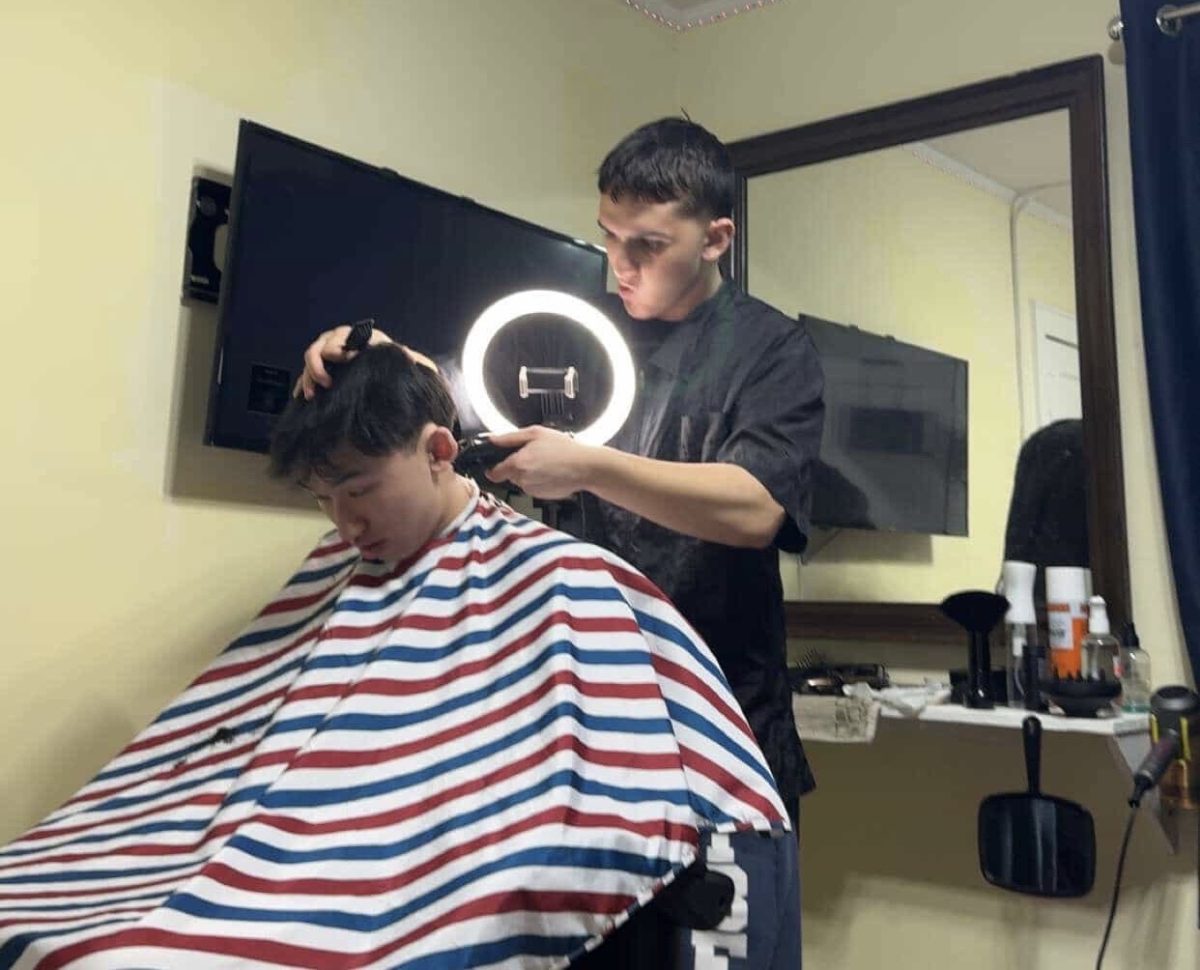As kids, we idolized those who lived the double life. Miley Stewart, a seemingly typical teenager, transforms into pop singer Hannah Montana at night. Daily Planet reporter Clark Kent removes his glasses, throws on a colorful costume, and he’s Superman. Former villain-turned-AVL-agent Gru holds many identities, but only a few know he is also solar panel salesman Chet Cunningham. We stood in awe of these identity swappers because they seemed like such a rarity, but these people are more common than you may think. Not in the form of famous pop singers, extraordinary superheroes, or supervillain dads, but people you see every day: your peers who work outside of school.
Many high school students hold jobs throughout the school year, and it’s easy for any interested student to apply for one. While not marked mandatory in the “checklist for teens,” jobs immerse kids into the “real world,” where they can learn time management, develop interpersonal skills, and gain some independence. By working, they can develop a better sense of how the world operates while making some money simultaneously. If you’re on the fence, you may be asking yourself: Do I have enough time in my schedule? How will I get to my potential job? Where do my grades stand right now? All of these questions are important to consider, but they are not the “be-all and end-all” between you and your first job. Turns out, living the double life is not as hard as you may think—if you manage it right.
Tip #1: Communicate with your family.
Starting your first job is difficult for anyone—especially teens who have never had exposure to a working environment. Communicating with your family about your work life can be a key element to maintaining a healthy balance. Senior Caitlyn Wong, who worked as a Tidal Tea barista throughout her junior year, talked to her parents before accepting the job. Her parents sat down with her to establish a few ground rules.
First, work could not come before her other responsibilities, especially schoolwork. She still had to maintain her grades and get decent sleep. Second, she had to work because she wanted to—not just because she wanted money.
“They’ve always pushed for me to be more financially independent, so I usually pay for all my things,” Wong said. “They didn’t want me to work just so I’d have spending money.”
By sitting down to talk, Wong got on the same page with her parents and developed a clear sense of why she wanted to work. A support system like your family can ease the transition to starting your first job.
Tip #2: Use your time efficiently.
If you know you have a lot of work to do, get it done early. If you can’t finish everything beforehand, be on the lookout for free time and take advantage of it if you can. Senior Jason Cao puts on his barista hat at Tous les Jours during rush hour, taking people’s orders, making drinks, and restocking items that are running low. But when work is slow, he swaps his barista hat for his student hat and turns his focus towards school.
“I do my school work, study, and do whatever I need to do before going to work,” Cao said. “Even at work, when there’s no one, I can do school work on my phone.”
Since beginning the job in December of his junior year, he has learned to prioritize the extracurriculars in his life.
“I usually put work last, as my job has a lot of other workers,” Cao said. “They can find someone to replace my shift or just do without me.”
By managing his schedule, he sees working as relaxing and calming his mind.
Tip #3: Failing to plan is planning to fail.
Be cognizant of where important events in your life fall on the calendar. Junior Ava Koh, who currently works as a skate guard and skate school instructor at Parkwood Ice Rink, has found balance by staying aware of her schedule in advance. She began working a few days before the first day of school, and since then, she has maintained a consistent schedule where she works two days a week for one hour, with a longer shift on the weekends.
“I made sure to tell myself on days with skate school, hey, I have to be here at 5, so let me make sure to get all my school work done before,” Koh said.
By planning, she has kept her work life and her personal life separate. With coaching, she can dedicate her energy to teaching her kids and forming close bonds with them.
“My best piece of advice is to remember why you’re there every day and to not let personal things get in the way of what you do,” Koh said.







